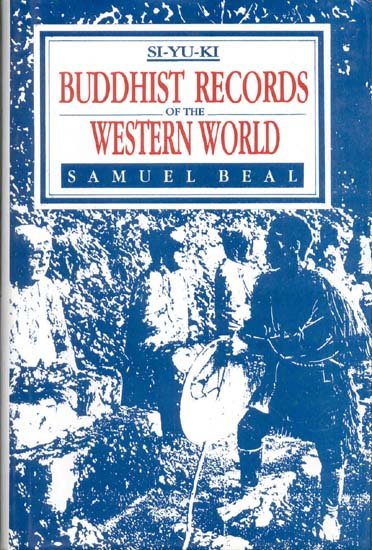Buddhist records of the Western world (Xuanzang)
by Samuel Beal | 1884 | 224,928 words | ISBN-10: 8120811070
This is the English translation of the travel records of Xuanzang (or, Hiuen Tsiang): a Chinese Buddhist monk who traveled to India during the seventh century. This book recounts his documents his visit to India and neighboring countries, and reflects the condition of those countries during his time, including temples, culture, traditions and fest...
Chapter 15 - Country of Chu-li-ye (Chulya or Chola)
The country of Chulya (Chola) is about 2400 or 2500 li in circuit; the capital is about 10 li round. It is deserted and wild, a succession of marshes and jungle. The population is very small, and troops of brigands go through the country openly. The climate is hot; the manners of the people dissolute and cruel. The disposition of the men is naturally fierce; they are attached to heretical teaching. The saṅghārārama are ruined and dirty as well as the priests. There are some tens of Deva temples, and many Nirgrantha heretics.
At a little distance south-east of the city is a stūpa built by Aśoka-rāja. Here Tathāgata in old time dwelt, and exhibited his spiritual power, and preached the sublime law, and defeated the heretics, delivering both men and Devas.
Not far to the west of the city there is an old saṅghārāma. This was the place where Ti-p'o (Deva) Bodhisattva discussed with an Arhat. In the first instance, Deva Bodhisattva heard that in this convent there was an Arhat called Uttara (Wu-ta-lo) who possessed the six supernatural powers (ṣaḍabhijñās), and the eight vimokṣas (means of deliverance); forthwith he came from a distance to observe his manner as a model. Having arrived at the convent, he asked the Arhat for a night's lodging. Now in the place where the Arhat lived (in his cell) there was only one bed. Having entered, in the absence of a mat, he spread some rushes on the ground, and showing it to him, begged him to be seated. Having taken the seat, the Arhat entered into samādhi, and came out of it after midnight. Then Deva proposed to him his doubts, and prayed him to answer them. The Arhat took up each difficulty and explained it. Deva, closely examining each word, pressed his difficulties in the way of cross-examination, till after the seventh round of discussion the Arhat closed his mouth and declined (was unable) to reply. Then using secretly his divine faculties, he passed into the Tuṣita heaven, and there questioned Maitreya. Maitreya gave the required explanations, but because of their character he added, "This is the celebrated Deva who for a succession of kalpas has practised religion, and in the middle of the Bhadra-kalpa ought to attain the condition of Buddha. You do not know this.[1] You should greatly honour him and pay him reverence."
In a moment he returned to his seat, and once more entered on a clear explanation (of the difficulties), which he expressed in great precision and language. Deva addressing him said, "This is the explanation of the holy wisdom of Maitreya Bodhisattva. It is not possible for you, reverend sir, to have discovered such profound answers." Then the Arhat said, "It is so, in truth; the will of Tathāgata." On this, rising from his mat, he offered him worship and profound reverence and praise.
Going from this south, we enter a wild forest district, and passing 1500 or 1600 li, we come to the country of Ta-lo-pi-ch'a (Drāviḍa).
Footnotes and references:
[1]:
Or, do you not know this?
